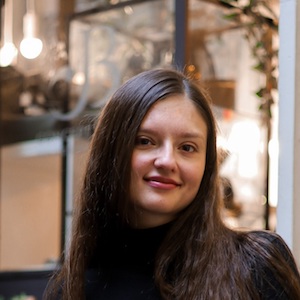Our testimonials: Yulia

Our testimonials: Yulia
Meet Yulia from Russia
Student of Master's degree of Mobility Studies
"The University of Padua and the Mobility Studies degree programme indeed represent a melting pot of cultures"

About myself
I am a second-year student in the master’s degree programme Mobility Studies. Having obtained my bachelor’s degree in Linguistics in Moscow, where I studied Italian as a second foreign language, I decided to continue my studies in Padua. Apart from that, I help other applicants from Russia to enter universities in Italy and Europe in general. Currently, I am also doing an internship in the Projects & Mobility Office at the University of Padua, where I take part in facilitating the mobility process of incoming exchange students.
Why did you choose the University of Padua and the Mobility Studies degree programme? Why would you recommend it to other students?
I always wanted to study abroad and experience the cultural diversity of an international classroom. The University of Padua and the Mobility Studies degree programme indeed represent a melting pot of cultures thanks to the international community of students, professors, and staff. For example, in my group, there are students from Australia, the United States, Turkey, Iran, Russia, Germany, India and many other countries. Cultural pluralism always fuels discussions during the lessons, and it is curious to learn more about the intercultural experience of my peers and colleagues.
What are the main features of your degree programme?
The main feature of the Mobility Studies degree programme is the interdisciplinary approach to the educational process. There is an opportunity to study all the complexity of movement, be it the movement of people within all types of migration, or the movement of ideas, or objects. The mobility of all the above-mentioned things is discussed not only in terms of space but also in terms of time. The curriculum is built in such a way that students from extremely various educational backgrounds can find something particularly exciting for them to study. Although the programme relies a lot on the knowledge of history, I can tell from my personal experience that having no solid background in historical sciences, I still enjoyed many of the courses and could satisfy my interest in studying the aspect of migration of people. Some of my classmates are more interested in museums, libraries, or archives. It all is profoundly discussed during studies and opens a lot of opportunities for future employment.
Is there any class/subject that stood out to you?
While it is hard to single out a certain course that stood out to me, I would still like to underline the subject called “Ideas and Cultures in Motion” that influenced a lot my perception of how modern society is deeply influenced by the ideas that were born in the past and migrated through time and space to the present. Another class is “English as a Global Language” that allowed me to dwell on the philosophical aspect of the language and learn why it was English that became the global language and the main means of communication in the international setting. Finally, thanks to such courses as “Cultural Encounters” and “Archives and Libraries on the Move”, we had a chance to visit museums and libraries in Venice and Turin. I would especially notice the fact that the curriculum is being updated every year and new courses are being launched and new professors are invited, which is, of course, a very important thing for the development of the programme.
What are some things people might not know about studying in Italy?
What distinguishes the University of Padova and Italy from other universities in other countries is that Italy is indeed a very generous country and so many students can afford education here because of the variety of scholarships and other funding opportunities that are provided either based on one’s academic merit or economic status. The educational system should also be mentioned as here you can retake exams and can decide when you want to take this or that exam. Such a system definitely requires responsibility on students’ part but also gives them the freedom to decide and organise their time. Finally, the University of Padova actively participates in the Erasmus+ and other exchange programmes, which seems also interesting for all of those who are willing to enrich their international experience and go study abroad in another country for a semester or the whole academic year.
What is your plan when you graduate?
Enjoying my current internship and being inserted in the realm of higher education for a couple of years now, I would like to continue working in that sphere and hopefully find employment in Italy or another European country where I could facilitate the mobility process of international students. In general, I am open to any opportunities in the field of migration and international cooperation and curious to see where graduating from the University of Padua could lead me.
MEET OUR TESTIMONIALS
Many students shared their experiences at the University of Padua.
Find out their stories!


